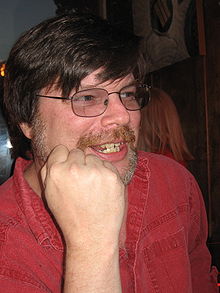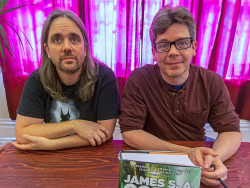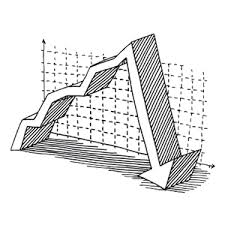
It’s an era defined by technology, as much as the previous era was defined by resources.
I’ve written here many times that the gating factor for technology is human capital. The more trained, empowered, and willing human minds you can bring to bear, the more you can grow. Contrast this to the resource era, where the key to growth was control, over the land and what lay on or beneath it.
The politics of 2020 were defined by the clash of these two economies. It was expressed throughout the culture. But the market made its verdict clear, and it was a true landslide.

What I learned in 2020 was to trust economic verdicts more than anything pundits, politicians, or even voters may say. America remains defined by the Golden Rule. He who has the gold makes the rules.
We’re going to discuss the implications of all this, and what comes next, in the coming weeks. But first I want to talk a little about what the best futurists got wrong. I’m not talking about analysts here, but writers. Great writers like Allen Steele and the collaborators Daniel Abraham and Ty Franck, who write as James S. A. Corey.
Steele and Corey got a lot right, but they got one important thing wrong. They defined the future as a search for resources. In Corey’s The Expanse, asteroids are being mined for precious metals and water. In Steele’s space novels, and in his ocean-going Oceanspace, the incentive for exploration is also to gain control of resources.

The Trump era will go down in history as a revolt against the new economics. As the Luddites invaded factories and broke machines to protect hand labor, Trumpites tried to protect oil and lumbering jobs at the expense of tech, weaponizing the Internet on behalf of a foreign resource holder, Vladimir Putin. The regions I have called Trumpistan are resource economies. The urban centers I have called Techlandia are research and software economies.

Steele’s novels predicted we’d be exploring space by now. We’re not doing it yet because space still lacks a business model. Tourism isn’t a compelling business model. Mining isn’t a compelling business model. Most science can be done on the ground.
What Steele got right was that billionaires would lead the charge. Elon Musk could be a character from a Steele novel. But space will remain a financial sink until it can generate revenue. Starlink, a communications network consisting of thousands of satellites in low orbit, promises to deliver broadband everywhere in the world, as Motorola’s Iridium failed to do 30 years ago. Iridium is proof you can lose as much money being early to a market as being late.

The problem is that the business of solar and wind will remain tough. The model here is that of the computer hardware business, where margins were continually crushed over time. We’re going to play the 1981 game, when the IBM PC moved computing from white-shirted salesmen to storefronts. But as we know from that time, this was only the start of the PC’s evolution. Computing then moved to superstores like CompUSA, then to custom builds from Dell, then to consumer electronics stores like BestBuy, and eventually online, where you can now get what was once a supercomputer for $100 and a few clicks, and you don’t need any training to use it.

What we saw in 1969 and beyond is that political temperatures cooled gradually, as people moved away from agitation into building new lives around the new economic rules. It didn’t look like it at that time, and it doesn’t look like it now, with political agitation seemingly at a peak, everything defined by the red-blue divide. But that’s the trend.
The lesson of 2020, and of every past crisis, whether in 1968 or 1932, 1896 or 1860, is that politics makes the headlines, but economics drives the train. The economics of abundance will define the 2020s. The need for human capital, for trained, empowered, and motivated brains, will define the economy of your time.
You are the resource we have been looking for.










